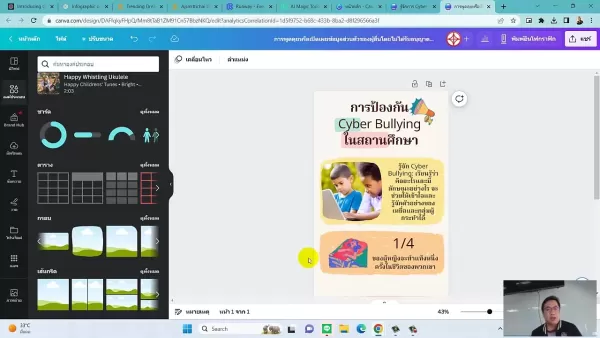Want to win in the age of AI? You can either build it or build your business with it

Exploring Career Opportunities in Generative AI
Generative artificial intelligence (AI) is opening up exciting career paths for both tech enthusiasts and business strategists. Unlike traditional technologies, AI offers two distinct routes: one can either focus on developing AI technologies or harness AI to enhance business operations.
Aditya Challapally, a key figure at Microsoft and an educator at Stanford Online, has delved into these dual career tracks in his recent research. His findings highlight the dynamic roles AI plays in both technical and business environments.
The Technical Career Track
For IT professionals, the race is on to deliver solutions quickly in response to ever-evolving business needs. Challapally emphasizes the importance of staying ahead by embracing new tools like GitHub Copilot, Cursor, and Claude Code. "In my experience, developers who effectively use these tools often become known as 10x-coders, maintaining a competitive edge even as others catch up," he shared with ZDNET.
The Domain Expertise Career Track
On the business side, generative AI isn't just about the tech—it's about applying it effectively to meet specific industry demands. Challapally points out that as AI becomes more commonplace, the real value lies in specialized knowledge. "The experts who stand out are those who deeply understand their industry and can pinpoint where AI can make the most impact," he noted. He cautions, however, that AI bots alone can't convey this nuanced understanding.
Challapally's interviews with 50 business leaders reveal a high demand for AI expertise, with a convergence of technical and business skills becoming increasingly vital. "Leaders prioritize this over traditional tasks like project management or crafting product visions," he observed.
Bridging the Gap
What's most sought after today, according to business leaders, are professionals who can navigate both the business and technical landscapes. These individuals can develop product visions, grasp coding basics, and align tech capabilities with business objectives. "It's about blending business acumen with technical literacy," Challapally explained.
Mastering AI Tools
For those on the technical side, mastering the use of AI tools is key. Challapally stresses the importance of learning to prompt these tools effectively to achieve accurate results. He also warns against underestimating these tools, as they can significantly enhance productivity, especially for smaller tasks. "Top professionals dedicate time weekly to explore new models and tools, even if most don't stick," he added.
Advice for Tech Professionals
- Stick to Fundamentals: Even with AI tools, traditional software engineering principles like modular design and system thinking remain crucial. Combining fast AI-driven development with solid product thinking can accelerate career growth.
- Learn the Basics: Spend two to four weeks gaining foundational knowledge in AI and generative AI. Familiarize yourself with tools like ChatGPT and DALL-E, and hone your prompt engineering skills.
- Become a Prompt Master: Mastering the art of prompting is essential and can take four to six weeks. Progress from basic input/output to advanced techniques like multi-channel prompting and JSON formatting to ensure consistent, reliable outputs from AI models.
- Choose Your Path: After grasping the basics, decide on a specialization based on your career context. Enterprise professionals might focus on systems architecture and AI integration, while independent professionals could master low-code/no-code tools and basic coding for rapid prototyping.
Advice for Business Professionals
- Map Your Industry's AI Landscape: Dedicate two to three weeks to study existing AI applications in your field. Understand what works, what doesn't, and where new opportunities lie.
- Understand User Behavior: Spend time learning how users in your industry interact with AI systems. Testing major AI tools in your field can provide valuable insights.
- Know How to Market: With the proliferation of AI apps, learning how to make your AI application stand out and attract attention is crucial.
Challapally also notes that while AI can handle about 80% of simple app development, the final 20% still requires technical expertise for debugging and real-world application. He anticipates this might improve to 95% for straightforward apps soon, but for now, technical skills remain essential.
Related article
 Best AI Tools for Creating Educational Infographics – Design Tips & Techniques
In today's digitally-driven educational landscape, infographics have emerged as a transformative communication medium that converts complex information into visually appealing, easily understandable formats. AI technology is revolutionizing how educa
Best AI Tools for Creating Educational Infographics – Design Tips & Techniques
In today's digitally-driven educational landscape, infographics have emerged as a transformative communication medium that converts complex information into visually appealing, easily understandable formats. AI technology is revolutionizing how educa
 Topaz DeNoise AI: Best Noise Reduction Tool in 2025 – Full Guide
In the competitive world of digital photography, image clarity remains paramount. Photographers at all skill levels contend with digital noise that compromises otherwise excellent shots. Topaz DeNoise AI emerges as a cutting-edge solution, harnessing
Topaz DeNoise AI: Best Noise Reduction Tool in 2025 – Full Guide
In the competitive world of digital photography, image clarity remains paramount. Photographers at all skill levels contend with digital noise that compromises otherwise excellent shots. Topaz DeNoise AI emerges as a cutting-edge solution, harnessing
 Master Emerald Kaizo Nuzlocke: Ultimate Survival & Strategy Guide
Emerald Kaizo stands as one of the most formidable Pokémon ROM hacks ever conceived. While attempting a Nuzlocke run exponentially increases the challenge, victory remains achievable through meticulous planning and strategic execution. This definitiv
Comments (6)
0/200
Master Emerald Kaizo Nuzlocke: Ultimate Survival & Strategy Guide
Emerald Kaizo stands as one of the most formidable Pokémon ROM hacks ever conceived. While attempting a Nuzlocke run exponentially increases the challenge, victory remains achievable through meticulous planning and strategic execution. This definitiv
Comments (6)
0/200
![GeorgeMiller]() GeorgeMiller
GeorgeMiller
 July 23, 2025 at 1:25:20 AM EDT
July 23, 2025 at 1:25:20 AM EDT
AI careers sound thrilling! Building AI tech or weaving it into business strategy—both paths spark innovation. I’m curious, which route feels more impactful to you? 🚀


 0
0
![JerryGonzález]() JerryGonzález
JerryGonzález
 June 1, 2025 at 2:15:30 PM EDT
June 1, 2025 at 2:15:30 PM EDT
生成AIってめっちゃ面白そう!技術者じゃなくてもビジネスに活かせる道があるなんて新鮮。どんな業界が変わるのかワクワクするね!😄


 0
0
![RogerGonzalez]() RogerGonzalez
RogerGonzalez
 June 1, 2025 at 1:16:48 PM EDT
June 1, 2025 at 1:16:48 PM EDT
¡La IA generativa es alucinante! Me intriga cómo puede ayudar a los negocios, aunque me preocupa si las empresas pequeñas podrán competir con los gigantes usando esto. 🧐 ¡Quiero aprender más!


 0
0
![DanielWalker]() DanielWalker
DanielWalker
 June 1, 2025 at 10:10:21 AM EDT
June 1, 2025 at 10:10:21 AM EDT
L’IA générative, c’est fascinant ! Je me demande si ça va vraiment révolutionner le marché du travail ou si c’est juste un buzz. Des opportunités sympas, mais j’espère que l’éthique suivra. 🤔


 0
0
![GaryLewis]() GaryLewis
GaryLewis
 May 31, 2025 at 11:15:33 AM EDT
May 31, 2025 at 11:15:33 AM EDT
Wow, generative AI sounds like a game-changer! Exciting to see so many career paths opening up, especially for non-tech folks like me who could use AI to boost business ideas. 🚀 Curious how fast this’ll shake up industries!


 0
0
![WillieAnderson]() WillieAnderson
WillieAnderson
 May 31, 2025 at 8:02:06 AM EDT
May 31, 2025 at 8:02:06 AM EDT
생성 AI가 이렇게 다양한 기회를 열어준다니 놀랍다! 기술 개발보다 비즈니스 활용이 더 끌리네. 근데 AI 윤리 문제는 좀 걱정돼... 😅


 0
0

Exploring Career Opportunities in Generative AI
Generative artificial intelligence (AI) is opening up exciting career paths for both tech enthusiasts and business strategists. Unlike traditional technologies, AI offers two distinct routes: one can either focus on developing AI technologies or harness AI to enhance business operations.
Aditya Challapally, a key figure at Microsoft and an educator at Stanford Online, has delved into these dual career tracks in his recent research. His findings highlight the dynamic roles AI plays in both technical and business environments.
The Technical Career Track
For IT professionals, the race is on to deliver solutions quickly in response to ever-evolving business needs. Challapally emphasizes the importance of staying ahead by embracing new tools like GitHub Copilot, Cursor, and Claude Code. "In my experience, developers who effectively use these tools often become known as 10x-coders, maintaining a competitive edge even as others catch up," he shared with ZDNET.
The Domain Expertise Career Track
On the business side, generative AI isn't just about the tech—it's about applying it effectively to meet specific industry demands. Challapally points out that as AI becomes more commonplace, the real value lies in specialized knowledge. "The experts who stand out are those who deeply understand their industry and can pinpoint where AI can make the most impact," he noted. He cautions, however, that AI bots alone can't convey this nuanced understanding.
Challapally's interviews with 50 business leaders reveal a high demand for AI expertise, with a convergence of technical and business skills becoming increasingly vital. "Leaders prioritize this over traditional tasks like project management or crafting product visions," he observed.
Bridging the Gap
What's most sought after today, according to business leaders, are professionals who can navigate both the business and technical landscapes. These individuals can develop product visions, grasp coding basics, and align tech capabilities with business objectives. "It's about blending business acumen with technical literacy," Challapally explained.
Mastering AI Tools
For those on the technical side, mastering the use of AI tools is key. Challapally stresses the importance of learning to prompt these tools effectively to achieve accurate results. He also warns against underestimating these tools, as they can significantly enhance productivity, especially for smaller tasks. "Top professionals dedicate time weekly to explore new models and tools, even if most don't stick," he added.
Advice for Tech Professionals
- Stick to Fundamentals: Even with AI tools, traditional software engineering principles like modular design and system thinking remain crucial. Combining fast AI-driven development with solid product thinking can accelerate career growth.
- Learn the Basics: Spend two to four weeks gaining foundational knowledge in AI and generative AI. Familiarize yourself with tools like ChatGPT and DALL-E, and hone your prompt engineering skills.
- Become a Prompt Master: Mastering the art of prompting is essential and can take four to six weeks. Progress from basic input/output to advanced techniques like multi-channel prompting and JSON formatting to ensure consistent, reliable outputs from AI models.
- Choose Your Path: After grasping the basics, decide on a specialization based on your career context. Enterprise professionals might focus on systems architecture and AI integration, while independent professionals could master low-code/no-code tools and basic coding for rapid prototyping.
Advice for Business Professionals
- Map Your Industry's AI Landscape: Dedicate two to three weeks to study existing AI applications in your field. Understand what works, what doesn't, and where new opportunities lie.
- Understand User Behavior: Spend time learning how users in your industry interact with AI systems. Testing major AI tools in your field can provide valuable insights.
- Know How to Market: With the proliferation of AI apps, learning how to make your AI application stand out and attract attention is crucial.
Challapally also notes that while AI can handle about 80% of simple app development, the final 20% still requires technical expertise for debugging and real-world application. He anticipates this might improve to 95% for straightforward apps soon, but for now, technical skills remain essential.
 Best AI Tools for Creating Educational Infographics – Design Tips & Techniques
In today's digitally-driven educational landscape, infographics have emerged as a transformative communication medium that converts complex information into visually appealing, easily understandable formats. AI technology is revolutionizing how educa
Best AI Tools for Creating Educational Infographics – Design Tips & Techniques
In today's digitally-driven educational landscape, infographics have emerged as a transformative communication medium that converts complex information into visually appealing, easily understandable formats. AI technology is revolutionizing how educa
 Topaz DeNoise AI: Best Noise Reduction Tool in 2025 – Full Guide
In the competitive world of digital photography, image clarity remains paramount. Photographers at all skill levels contend with digital noise that compromises otherwise excellent shots. Topaz DeNoise AI emerges as a cutting-edge solution, harnessing
Topaz DeNoise AI: Best Noise Reduction Tool in 2025 – Full Guide
In the competitive world of digital photography, image clarity remains paramount. Photographers at all skill levels contend with digital noise that compromises otherwise excellent shots. Topaz DeNoise AI emerges as a cutting-edge solution, harnessing
 Master Emerald Kaizo Nuzlocke: Ultimate Survival & Strategy Guide
Emerald Kaizo stands as one of the most formidable Pokémon ROM hacks ever conceived. While attempting a Nuzlocke run exponentially increases the challenge, victory remains achievable through meticulous planning and strategic execution. This definitiv
Master Emerald Kaizo Nuzlocke: Ultimate Survival & Strategy Guide
Emerald Kaizo stands as one of the most formidable Pokémon ROM hacks ever conceived. While attempting a Nuzlocke run exponentially increases the challenge, victory remains achievable through meticulous planning and strategic execution. This definitiv
 July 23, 2025 at 1:25:20 AM EDT
July 23, 2025 at 1:25:20 AM EDT
AI careers sound thrilling! Building AI tech or weaving it into business strategy—both paths spark innovation. I’m curious, which route feels more impactful to you? 🚀


 0
0
 June 1, 2025 at 2:15:30 PM EDT
June 1, 2025 at 2:15:30 PM EDT
生成AIってめっちゃ面白そう!技術者じゃなくてもビジネスに活かせる道があるなんて新鮮。どんな業界が変わるのかワクワクするね!😄


 0
0
 June 1, 2025 at 1:16:48 PM EDT
June 1, 2025 at 1:16:48 PM EDT
¡La IA generativa es alucinante! Me intriga cómo puede ayudar a los negocios, aunque me preocupa si las empresas pequeñas podrán competir con los gigantes usando esto. 🧐 ¡Quiero aprender más!


 0
0
 June 1, 2025 at 10:10:21 AM EDT
June 1, 2025 at 10:10:21 AM EDT
L’IA générative, c’est fascinant ! Je me demande si ça va vraiment révolutionner le marché du travail ou si c’est juste un buzz. Des opportunités sympas, mais j’espère que l’éthique suivra. 🤔


 0
0
 May 31, 2025 at 11:15:33 AM EDT
May 31, 2025 at 11:15:33 AM EDT
Wow, generative AI sounds like a game-changer! Exciting to see so many career paths opening up, especially for non-tech folks like me who could use AI to boost business ideas. 🚀 Curious how fast this’ll shake up industries!


 0
0
 May 31, 2025 at 8:02:06 AM EDT
May 31, 2025 at 8:02:06 AM EDT
생성 AI가 이렇게 다양한 기회를 열어준다니 놀랍다! 기술 개발보다 비즈니스 활용이 더 끌리네. 근데 AI 윤리 문제는 좀 걱정돼... 😅


 0
0





























